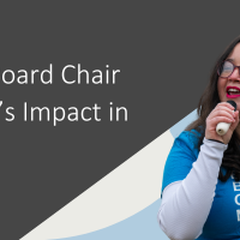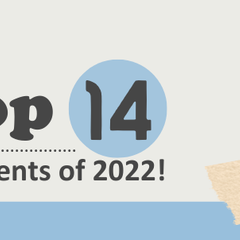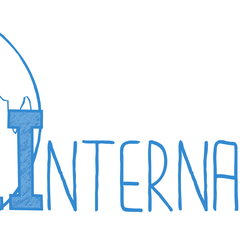
T1International Year in Review: 2024
15 Dec 2024, 11:41 a.m. in #insulin4all USA, Global Stories, News & Statements by T1International
As 2024 comes to an end, we’re taking a moment to reflect on the collective power of the T1International community. This year has been filled with challenges and victories as we’ve worked together to fight for affordable and accessible insulin. Here’s a month-by-month look at what we’ve accomplished, thanks to your support and the dedication of advocates across the globe.

January: We take action in humanitarian crises
With the support of our MENA #insulin4all Chapter and other global advocates, a new checkpoint was opened to get medical aid, including insulin, into Gaza. This was part of a broader call for a humanitarian crossing to deliver life-saving care, later expanded to an escalated call for a ceasefire, medical envoy and ongoing medical aid. We also collaborated with Human Rights Watch, who released a report highlighting the urgent need for action.

February: We build leadership of those most impacted with skilled trainings
We held a training on creating powerful visuals for protests and demonstrations, one of over two dozen training sessions this year. These trainings equip advocates with the tools to amplify their voices and call for change. This year we also ran four working groups (The Fight for Five Working Group, the Federal Working Group, the State Working Group and Families United for Affordable Insulin) and launched a Speakers Bureau to better train our community to make the news!

March: We mobilize our community in in strategic protest action
Hundreds of advocates participated in over a dozen events across the globe for the Global Day of Action for #insulin4all, sharing powerful stories about the urgent need for insulin equity. These events showcased the global solidarity of the diabetes community and amplified the voices of people impacted by high insulin costs. In addition to in-person actions, advocates engaged online, with thousands joining social media campaigns to demand change. The day was a reminder of the strength of collective advocacy in the fight for affordable and accessible insulin.

April: We research and write reports
We released the Public Pharma Toolkit, a resource for advocating for publicly produced insulin. Later in the year, Brazil announced plans to begin domestic production of insulin, making it free for diabetes patients. This milestone could serve as a model for future efforts in other countries. We also brought together advocates, legislators, researchers and more in a Public Pharma Roundtable at Yale Law School later in the year. April was also the month that our one-of-a-kind Out of Pocket cost survey data was published in Frontiers in Clinical Diabetes and Healthcare. This essential research puts real data to the realities of rationing that our community faces every day.

May: We directly take on Big Pharma
Eli Lilly shareholders were asked to adopt a comprehensive human rights policy, thanks to over 1,000 petition signatures. Although the motion didn’t pass, we will continue to push for insulin as a human right.

June: We collaborate to spotlight inequities in diabetes care
In June, T1International and Médecins Sans Frontières/Doctors Without Borders released a joint issue brief, Defeating the Double Standard in Diabetes Care. The brief highlighted the disparities in access to life-saving diabetes treatments and the urgent need for systemic change. This collaboration underscored the importance of partnerships in addressing global health inequities and advancing our mission.

July: We build and celebrate momentum in the fight for affordable insulin
The U.S. Federal Trade Commission announced plans to investigate and sue insulin manufacturers and intermediaries for price gouging. This critical development followed years of advocacy for anticompetitive practices and patent thicketing, including significant contributions from T1International.

August: We amplify stories and global partnerships
Global Advocate Kelia Moses shared their powerful story of living with diabetes in Sierra Leone in our blog. Stories like theirs remind us why we fight for insulin access everywhere. Partners Help Madina and We Care Sierra Leone made a documentary about the new Diabetes Care Unit at the Makeni Regional Hospital and held film screenings using their solar power cinema kit. Their work is just one of many partners and collaborators with whom T1International works.

September: We drive change through leadership and advocacy
We celebrated leadership transitions as Founder Elizabeth Pfiester passed the torch to our new Executive Director, Shaina Kasper. At a celebratory event, we reflected on past successes and looked toward the future. This month also marked our advocacy at the U.S. Senate, where we called out Big Pharma for their exploitative practices during hearings with Novo Nordisk.

October: We call on the World Health Organization to take meaningful action
In October, we submitted a proposal to add rapid-acting analog insulin to the World Health Organization’s Essential Medicines List (EML), a key step toward making insulin more accessible worldwide. This effort was supported by a broad coalition of researchers, advocates, and healthcare professionals who lent their expertise to the submission. The momentum around the EML submission reflects the power of collective advocacy and the potential for systemic change.

November: We recognize World Diabetes Day by taking action!
For World Diabetes Day in November, T1International delivered a petition to insulin manufacturers calling for $1 insulin pens and an end to the discontinuation of pens in South Africa. Alongside Médecins Sans Frontières, the Treatment Action Campaign, and Santé Diabète, we protested outside Novo Nordisk’s offices in Johannesburg to demand patient-centered policies. In the U.S., chapters like Washington #insulin4all also organized demonstrations to raise awareness of insulin’s unaffordability. These coordinated actions across the globe demonstrated the unwavering resolve of the diabetes community to hold manufacturers accountable and fight for justice.

December: We fight back against discontinuations and shortages
We submitted a letter to the U.S. Health and Human Services Department urging action on Novo Nordisk’s global discontinuation of Levemir, continuing our work on making medicines more accessible and affordable by decreasing access to care including patent reform and more.

As we close out 2024, we remain committed to fighting for affordable and accessible insulin for all. We are working to do this more efficiently by streamlining our operations into one entity – starting in 2025, T1International USA will be the organizational home for all of T1International’s mission-driven work for insulin access and affordability around the world.
None of this work would be possible without your support. Together, we’ll continue to push boundaries, hold companies accountable, and make meaningful change in 2025 and beyond!













